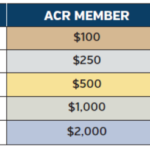As physicians, we play an important role in the well-being of patients and serve as advocates to ensure our patient receives adequate healthcare services. Unfortunately, many of the policy decisions that govern our medical practices are made by bureaucrats with inadequate input from physicians. Certain constraints placed on the way we should practice medicine have collectively hindered our progress as rheumatologists, thereby making it difficult to provide optimal clinical care—our promise to patients when we first take the Hippocratic oath.
There is an ever-growing, but largely unmet need for physicians to be social activists to ensure patients receive the services they need. Although many of us understand the importance of advocacy as a core principle in our clinical practice, our time is consumed by direct medical care, making less time available for advocacy efforts to bring social, political and economic changes to improve healthcare. One advocacy forum that helps us get in touch with people who matter the most in policy making and that serves as a bridge between rheumatologist and patients is the ACR’s Political Action Committee, also known as RheumPAC.
As a practicing rheumatologist, I have often been tormented by healthcare legislation that governs the way I should practice. Often, I am forced to provide medical care as dictated by insurance policies rather than doing what I know—by using my clinical judgment—is best for my patients. Due to insurance constraints, I have often spent long hours on the phone to obtain prior authorization rather than spending more quality time with patient care. This situation has left me frustrated. I am left with two choices: To stay quiet and suffer through the ignominy of being unable to help my patients and peers, or to stand up and make my voice heard.
I can very proudly say that I choose the latter. I have been associated with RheumPAC since 2016.
Serving on the committee reminds me of a quote by anthropologist Margaret Mead: “Never doubt that a small but thoughtful group of committed citizens can change the world; indeed, it is only thing that ever has.”
Serving on this committee has opened my eyes to the many obstacles we face in our daily clinical practice. The various trips we have made to Congress have helped me understand the fundamentals of health advocacy, the legislative process and how to be an advocate at the local, state and federal levels. As a core group, we concentrate on identifying the various problems encountered in our daily clinical practice, creating solutions using effective strategies and acting to bring positive changes.
